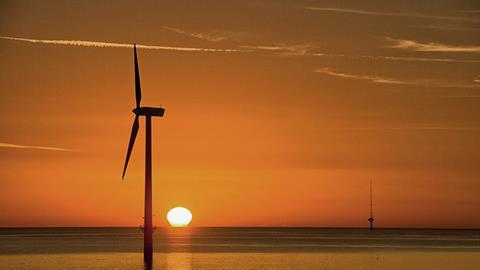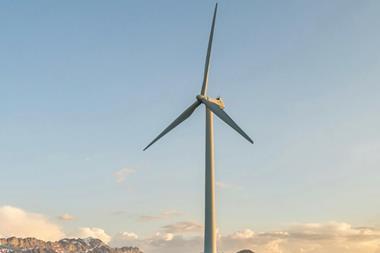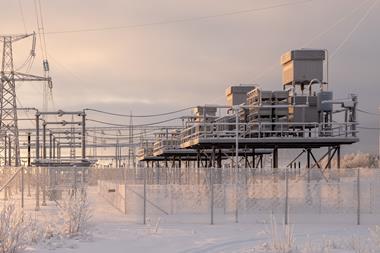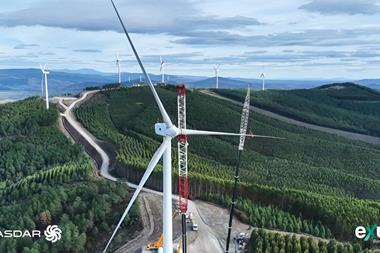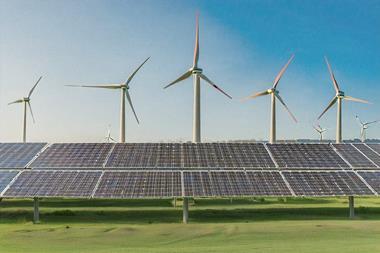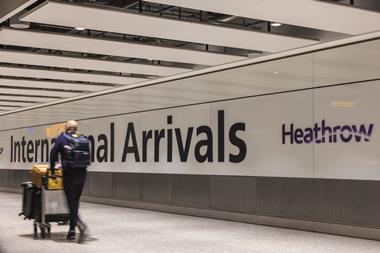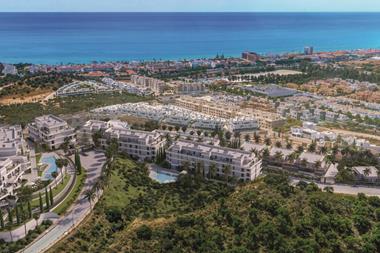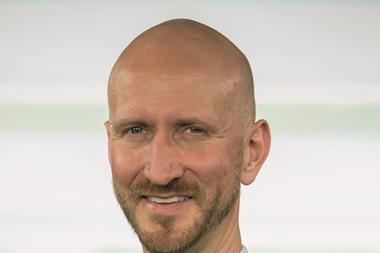The Ukraine conflict has major implications for energy security and investors’ decarbonisation ambitions, writes Christopher Walker
Russia’s invasion of Ukraine has dramatically changed the outlook for infrastructure investors, while European energy policy has been upended, raising questions over the push to net zero and energy security.
Yves-Maurice Radwan, head of infrastructure Investments at Commerz Real agrees, says the crisis “creates a new trade-off between going green, stopping climate change and ensuring energy supply”.
Gianluca Minella, head of global infrastructure research at DWS, says: “We are seeing a return to reliance on coal and nuclear. In other words, in the short term we are seeing a slowdown in decarbonisation. The existing CO2 emissions framework is likely to be seriously challenged in the current market environment.”
Carbon permit prices for the EU’s emissions trading system (ETS), the world’s largest scheme for trading emissions, plummeted from a high of €97 in early February to below €60 this month (before climbing to about €76 on 17 March).
“If we so dramatically return to fossil fuel capacity usage in the short term at a time of such high-power prices, the calls we are starting to see from industry for changes to the existing CO2 emissions trading system are likely to accelerate,” says Minella.

Earlier this month, the General Confederation of Italian Industry, or Confindustria, said the EU ETS should be put on pause for the time being and that the EU’s climate policy needed to be reviewed “to protect essential industrial supply chains”. There is an initiative in the European Parliament to make it easier for the EU to increase the supply of carbon permits in case of drastic price increases.
DWS forecasts a 1-1.2% reduction in European GDP. “If you have to add higher energy prices, commodities and the cost of any energy transition on top of this, then this will become very difficult for the European economy and industry,” says Minella.
Tony Coveney, managing director and head of infrastructure asset management at ThomasLloyd, says: “There is now a definite recognition of the importance of ‘base load power’ and of energy security, two issues hugely neglected in Europe. You must have a base load in order to stabilise the grid for times when renewables will not work. In Europe we have been somewhat naïve, neglecting this in our rush towards net zero.”
Coveney is outspoken. “We have had a tendency to change the direction of energy policy at the speed of a McDonald’s burger flipper, and made some very foolish decisions such as the one 10 years ago not to bother to store gas any more.”
Indeed, as Ulrik Fugmann, co-head of the environmental strategies group at BNP Paribas Asset Management, points out: “The situation in Ukraine relates not to resource scarcity, but to energy dependence; 40% of Europe’s gas comes from Russian pipelines, several of which run through Ukraine.”
The situation is particularly acute for Germany, the Netherlands and Italy. “Clearly the current crisis is a big concern when it comes to Germany’s energy-transition policy,” says Minella. “Germany was moving from being a net exporter of power to the rest of Europe, to becoming a major importer due to its shutting down of its nuclear and coal capacity. Now these plants may need to be reassessed.”
This will be a difficult political exercise. As Robert Habeck, Germany’s economic and energy minister, recently made clear: “Coal and nuclear are not alternatives for Germany”. At least for now. If Russia were to carry through on its threat to turn off its existing gas pipelines to Germany, the implications are almost to frightening to consider.
“An affordable source of energy is an essential part of any economy,” says Minella.
A boom in renewables?
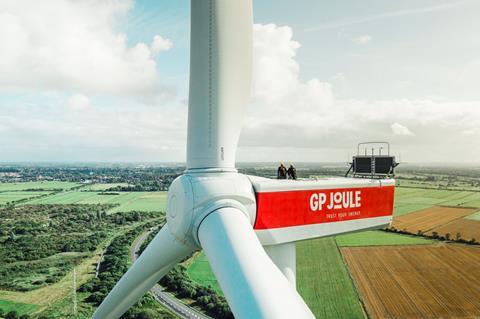
But the long-term consequences are likely to be the exact opposite of the short-term ones. Philipp Mueller, CEO of BlueOrchard Finance, says: “We expect the current environment to further accelerate the move to renewable energy.”
Michael Ebner, managing director of sustainable infrastructure at KGAL, is also “confident that the expansion of wind and solar energy can be accelerated significantly”, but he notes that the “prerequisite for achieving this is that governments in Europe take bold, decisive and effective measures as quickly as possible”.
Fugmann observes that several European countries are speeding up the long-term energy transition. “Germany has turbocharged its transition by bringing forward its plans to be 100% renewable by 15 years, to 2035… and to be producing 80% of its power from renewables by 2030,” he says. “The energy-transition investment theme is likely to dislocate significantly from broader markets.”
However, Radwan says: “Measures to upgrade grid infrastructure and a stable framework for storage technology deployment are key, so that we do not risk grid stability. Without this in place, the result could be a waste of green electricity.”
Kevin Chin, renewable-energy entrepreneur and founder of Arowana, says: “Energy security will not just be an issue for nation states but also for large corporates where boards will seek to ensure energy security for their operations.”
Radwan agrees. “PV will be a winner. We will not only see strong growth in utility-scale projects, but industrial and residential PV projects will also vastly increase as companies and consumers aim to ensure stable and predictable energy costs.”
European companies are reported to be doing just this. Harald Overholm, CEO at Alight, a Stockholm-based company that builds and operates solar farms onsite for companies, says his pipeline of sales has risen 300% in just a few weeks.
Minella also believes the crisis is likely to lead to an acceleration in the deployment of hydrogen. “Not necessarily green hydrogen, but maybe also increased usage of blue or grey hydrogen,” he says.
The geographical implications could be interesting. “For LNG, there will clearly also be a pivot towards the US,” says Minella. “If this lasts longer… we may see a more general European pivot towards the US.”
Institutional investors tend not to have significant exposure to Eastern Europe. “But we are likely, of course, to see reduced appetite for investment in the geographical periphery of Europe,” says Minella, who notes that 10-year government bond yields have risen dramatically. In Poland they have gone from around 1% to 5%; in Romania they have reached 6.75%.
“The current crisis confirms our desire not to make infrastructure investments in Europe and our decision to concentrate on the fast-growing Asian markets,” says Coveney. “There will be knock-on effects in Asian markets – and obviously the price of energy has massively increased globally – but infrastructure and energy investments in Asia remain highly attractive.”





